Benefits of smoking ban hailed 10 years on
- Published
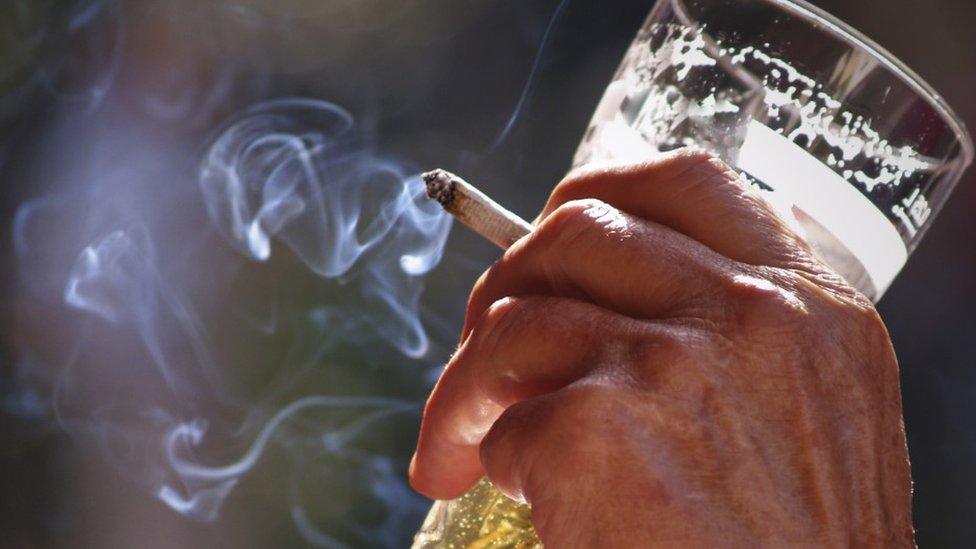
The ban on smoking in public places came into force 10 years ago
The smoking ban which came into force 10 years ago has saved Scots from breathing in more than half a tonne of toxic material, a study has suggested.
Campaigners and researchers looked at what impact a decade of smoke-free pubs, restaurants and other public places had on the adult population.
Action on Smoking and Health (Ash) Scotland worked with academics at the University of Aberdeen.
They said second-hand smoke contains more than 4,000 chemical compounds.
At least 250 of those compounds are known to be toxic or to cause cancer.
Critics of the ban have highlighted its negative impact on the pub and club trade. They said it has led to closure of some inner city and community pubs and working men's clubs.
According to the researchers who looked at the health impact, of particular concern are the smallest particles, called PM2.5, which are invisible to the human eye but can linger in the air for hours and travel deep into the lungs.
Detailed measurements before and after the smoke-free legislation showed these levels inside pubs decreased by 86% when smoking was moved outside.
'Cautious estimate'
The team said that using existing knowledge of how much air adults breathe and how much time they spend in a pub, this means the change in the amount of PM2.5 breathed in can be totalled over the decade.
The researchers said that taken as a whole, the adult Scottish population has inhaled at least 600kg less of these tiny toxic particles because of smoke-free pubs.
Dr Sean Semple, of the Scottish Centre for Indoor Air at the University of Aberdeen, said: "Scotland's introduction of smoke-free public spaces was one of the most closely studied pieces of public-health legislation ever, allowing us to look very carefully at the impact it had.
"We have known for many years that second-hand smoke is harmful, but I don't think anyone predicted just how much benefit smoke-free places would deliver.
"This calculation shows that over half a tonne of toxic material would have been inhaled by the population over the past 10 years if Scotland had not taken this bold step."
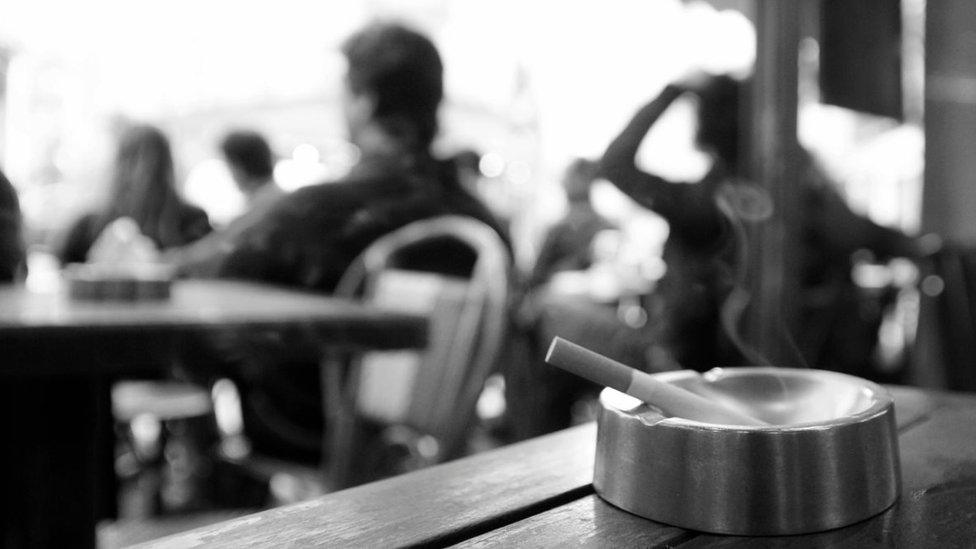
He added: "This is a cautious estimate that takes account of the slow improvement in air quality that may have occurred if the law had not been introduced. And of course the benefits will have been substantially greater for bar workers or waiting staff, who may spend 40 hours a week in such environments."
Sheila Duffy, chief executive of Ash Scotland, said: "The cultural impact of smoke-free public places has been profound, with a new generation growing up with smoke-free environments as their right and their expectation.
"On top of that the intended health benefits have been surpassed, with today's new figure helping to explain why asthma and heart attacks have decreased so much."
'A third way'
Paul Watterson, from the Scottish Licensed Trade Association, told BBC Scotland the smoking ban had been bad for business.
He said: "We were told at the time thousands more people will come in your pubs now they are smoke free, people won't smell of smoke and all the rest of it.
"It was nonsense then and it is still nonsense. We never saw these people."
Meanwhile, a survey commissioned by Smokers' lobby group Forest suggested about 54% of Scots would allow "well-ventilated" designated smoking rooms in pubs and clubs.
More than 1,000 people were questioned in the Populus poll ahead of the tenth anniversary of the ban.
Simon Clark, Forest director, said: "Designated smoking rooms offer a third way. Those who don't want to be exposed to tobacco smoke would continue to be protected but it would give adults who choose to smoke somewhere to light up indoors, in comfort.
"No pub or club would be compelled to provide a smoking room. The owner or club members would choose.
"The fact that so many people support designated smoking rooms, ten years after the smoking ban was introduced, shows that this issue will not go away."
He added: "Tobacco is a legal product. One million adults in Scotland smoke. Between them they contribute over £2bn a year in tobacco tax, a sum that far outweighs the alleged cost of treating smoking related diseases."
- Published17 December 2015
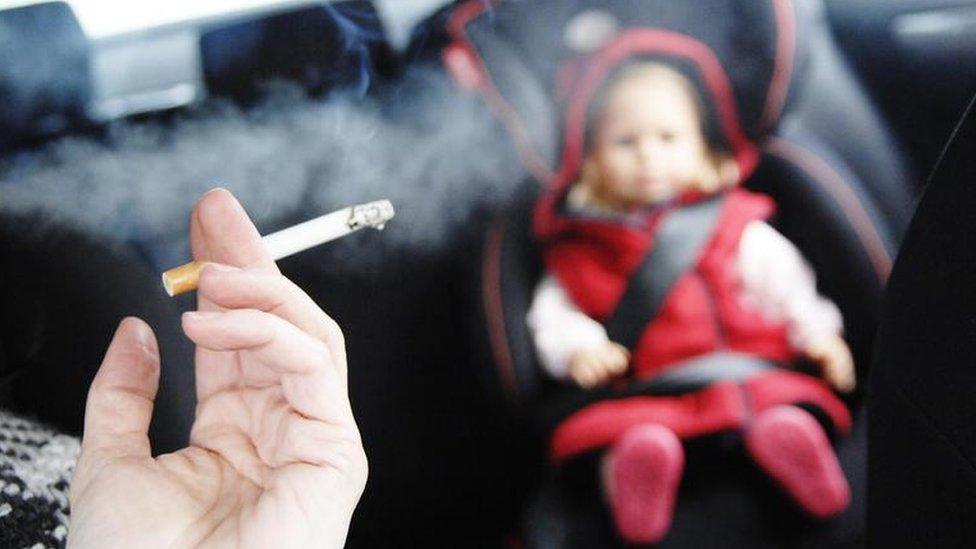
- Published3 December 2015
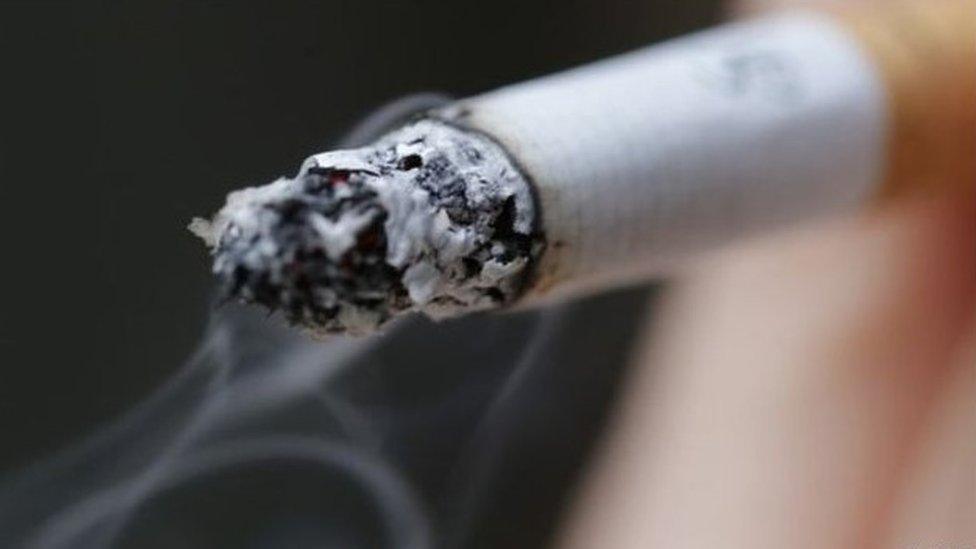
- Published8 October 2015
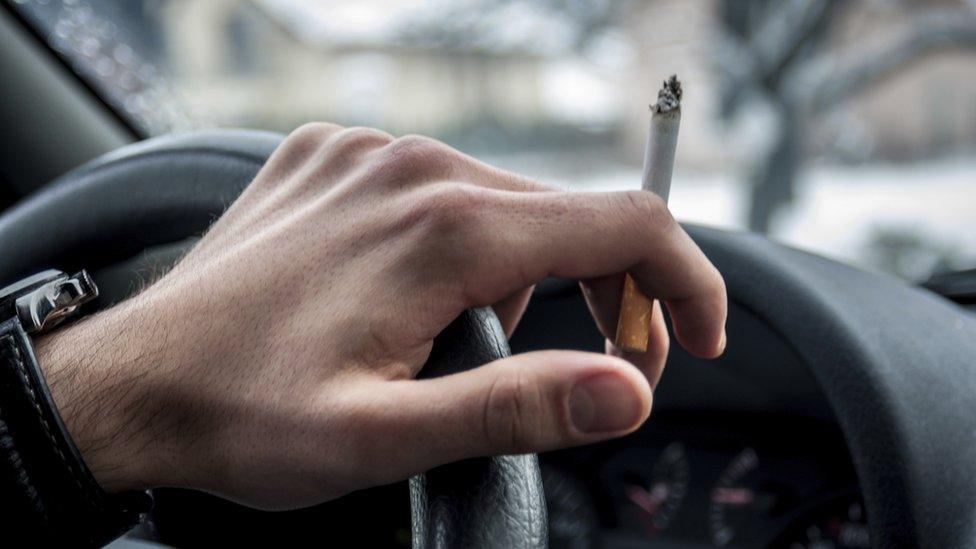
- Published7 March 2012
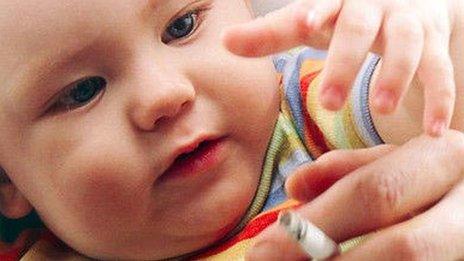
- Published25 March 2011